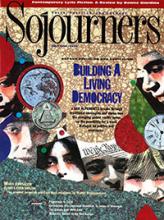The need for reviving the discussion of theology, ethics, and economics in church circles has become urgent in light of contemporary events. Most dramatic and obvious has been the political collapse of communist governments in what was formerly called Eastern Europe. The revolutionary changes under way in those societies are raising fresh and fundamental questions about the ability of economies inspired by Marxist ideology--and guided by the centralized power of a single party--to build economic and social liberation and to enable human fulfillment.
The failures of these social experiments are increasingly obvious as one listens to the testimonies of their victims: the denial of people's active political participation in decisions affecting their lives, the rigid oppression and control of populations through an elaborate apparatus of security forces, economic stagnation preventing responses even to simple needs felt by people, corruption of the powerful creating an elite with tightly protected privileges, pressures to suppress or subvert spiritual perspectives and practices, and the increasing destruction of the environment with serious damage to human health.
The collapse of these political and social structures has been felt not only within those societies, but also has contributed to a growing global ideological crisis. Marxism, after all, has functioned globally as the great restrainer of capitalism. It has set forth an analysis revealing the depths of economic power and the roots of much oppression. It has held forth the idea that societies can be organized according to principles other than those that maximize economic gain for a privileged few. And it has been a philosophical alternative that has challenged people to place their hopes and efforts with the aspirations of the poor.
Read the Full Article
